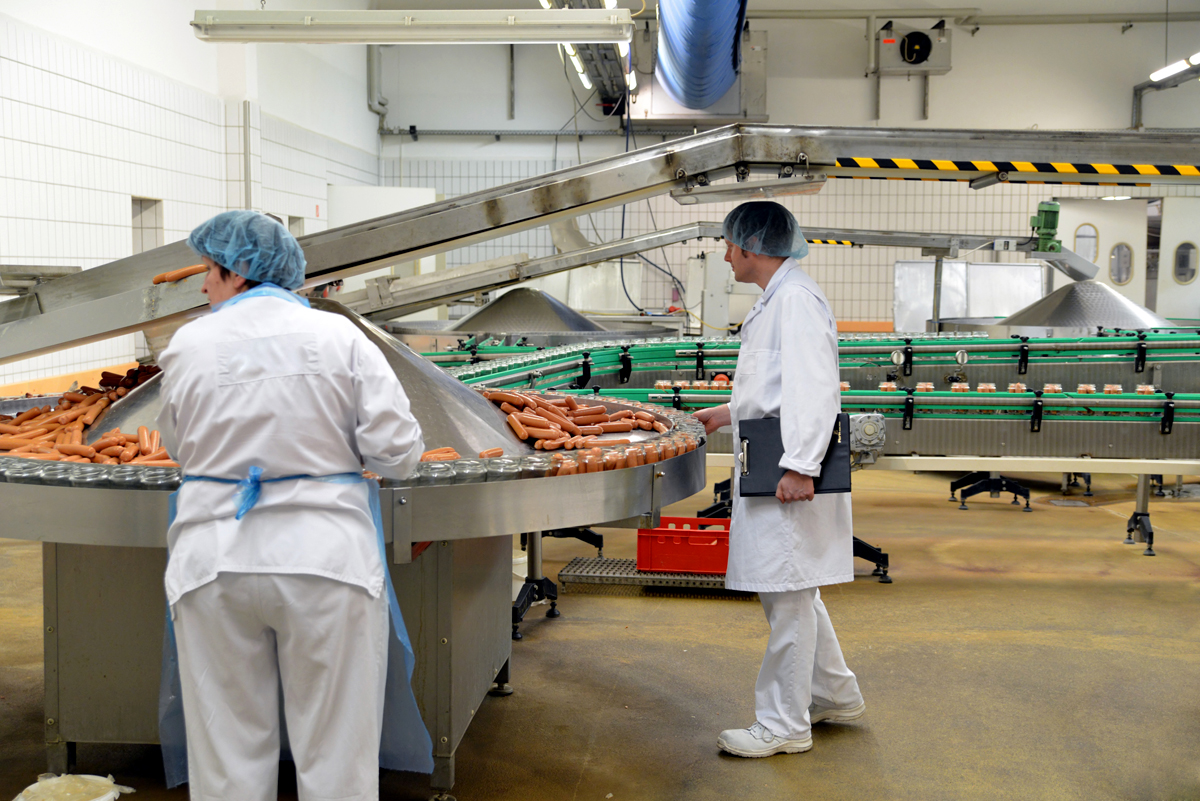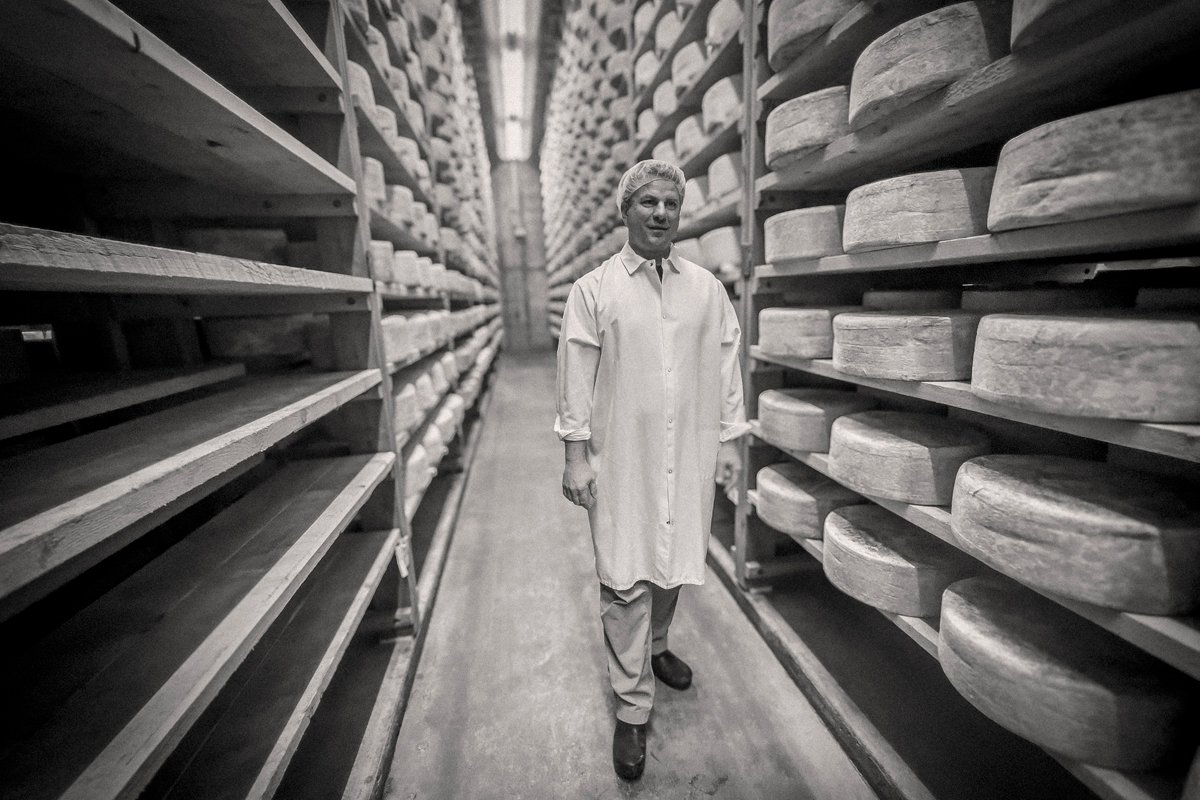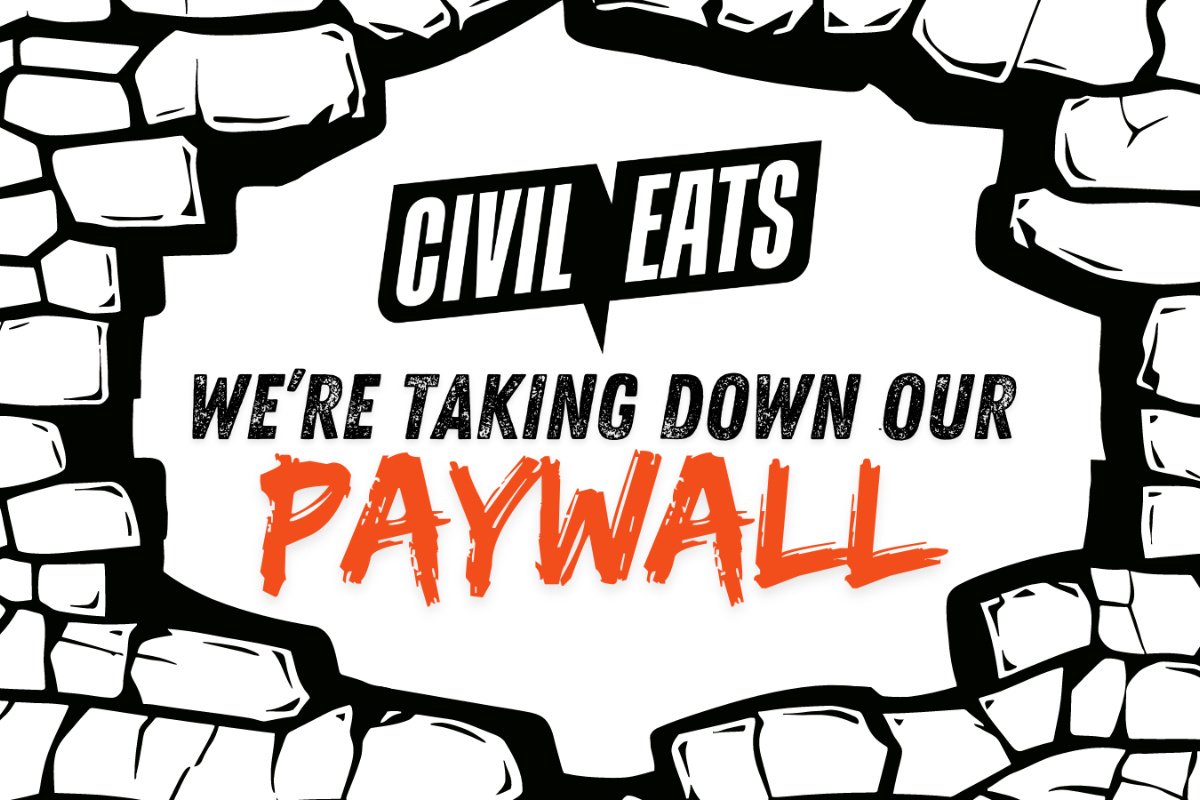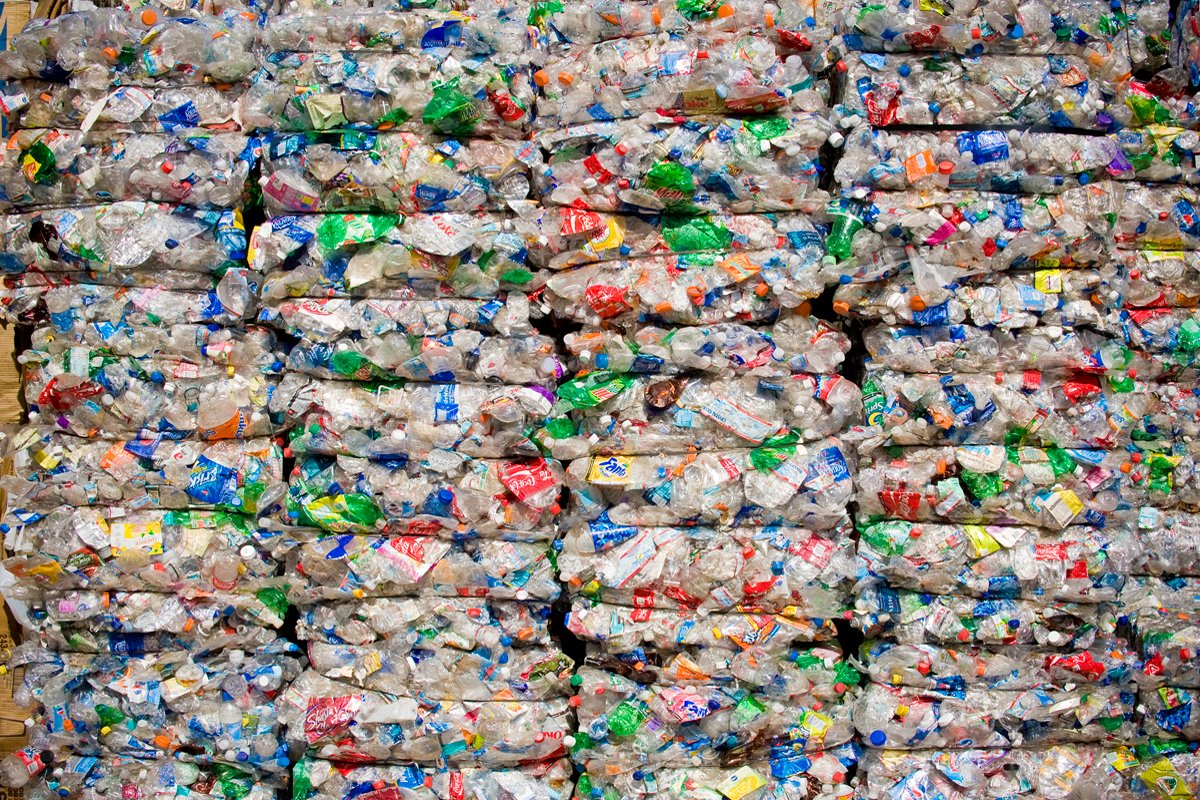Inspection suspensions, enforcement freezes, and rule rollbacks by the EPA, USDA, and the FDA could have dire impacts on the food system.

Inspection suspensions, enforcement freezes, and rule rollbacks by the EPA, USDA, and the FDA could have dire impacts on the food system.
April 14, 2020

April 27, 2020 update: The Centers for Disease Control has just released suggested guidance for meat and poultry slaughterhouse workers to help to control the coronavirus that has spread rapidly through meatpacking plants around the country.
While the coronavirus pandemic claims more lives and precious resources throughout the U.S., the federal government has been suspending regulations, canceling inspections, and rolling back regulations that experts warn could significantly impact the country’s food system.
Much of the action has centered around the three agencies that oversee the nation’s food safety net and regulate pollution from industrial farms: the Food and Drug Administration (FDA), the Environmental Protection Agency (EPA), and the Department of Agriculture (USDA). As the agencies have put on hold rules meant to prevent foodborne illnesses and industrial pollution, experts worry that some companies may take advantage of the lull and do less to protect public health and the environment.
“The administration has stepped away from its responsibility and empowered regulated industries to take charge and do as they please,” said Hannah Connor, a senior attorney at the Center for Biological Diversity.
In mid-March, the FDA announced that it would temporarily suspend routine domestic facility inspections, including at food processing facilities, dairy farms, and animal feed processors. This followed the agency’s announcement earlier that month that it would postpone most foreign facility inspections. The agency, which regulates about 75 percent of the U.S. food supply, said it would continue to conduct “for cause” inspections due to suspected outbreaks.
The inspection suspensions come as the Trump administration has installed Mindy Brashears, a bureaucrat whose past research was funded by the National Cattlemen’s Association and the National Pork Board, as the nation’s top food safety official.
“Now they’ll be doing a poorer job of an already poor job.”
During routine inspections, FDA inspectors visit farms and factories, where they can collect microbiological samples when they believe there’s a potential food safety problem. In the past, such samples have tested positive for foodborne pathogens and were matched to positive samples from sick people, leading to the detection of outbreaks. Inspections have also triggered warning letters, citations, and investigations into foodborne illnesses.
While the inspections are a baseline tool, Bill Marler, an attorney, the publisher of Food Safety News, and a national food safety expert, says suspending inspections might not make a significant difference, since inspectors visit establishments only every 5-7 years.
“They do so little [already] that cutting back won’t have an enormous impact, at least not right away,” Marler said. “Now they’ll be doing a poorer job of an already poor job.”
But the inspection suspensions must be viewed as part of a carefully balanced food safety system that’s now under threat, said Barbara Kowalcyk, director of the Center for Foodborne Illness Research and Prevention at Ohio State University.
“On the surface, stopping these inspections won’t make a big impact. But when you look at the system as a whole, there’s a lot of disruption. Several of the hurdles in our food safety system are being impacted by the pandemic,” she said.
Because the U.S. food safety system is highly fragmented and ineffective, Kowalcyk said, many companies and local governments have their own food safety checks in place. Some large grocery stores and restaurant chains create contracts that require their supply chains to adhere to their own standards. Often, they do their own checks and mandate the use of certified auditors, though those third-party auditors are paid by the very growers or shippers they inspect.
On their own, none of these checks are fool-proof, but together they’re able to catch most of the problems, Kowalcyk said.
And while it’s hard to say just how many it stops, there is no shortage of recent examples of outbreaks. Take the September 2019 romaine/E. coli outbreak, which hospitalized 85 people, or the November 2019 outbreak in ground beef, which hospitalized 29 people.
The current challenge, Kowalcyk said, is that COVID-19 has stretched all of the resources across this multi-pronged system and put enormous pressure on the shoulders of employers and employees. It’s possible, Kowalcyk said, that third-party audits have been reduced or that they are being conducted in a more haphazard way. In addition, the pandemic has caused changes in food retail practices. As a result of all these changes, the safety checks are not working as intended.
“COVID is putting financial stress on companies and they’re trying to conserve costs. Some workers are concerned for their safety. They might change behavior, they might not check for problems. We all make mistakes when we’re under stress,” Kowalcyk said.
And because the American food supply is global—with about 30 percent of our vegetables and more than 50 percent of fruits now imported into the U.S.—the COVID-related strain felt by other countries, many of which have even fewer resources and less robust food safety and healthcare systems, could significantly disrupt the food supply chain, she said.
State agencies responsible for food safety are also severely compromised as states across the nation are cutting their budgets in response to a loss of revenue caused by the coronavirus pandemic. Ohio is contemplating a 20 percent budget cut due to COVID-19; New York is facing a $15 billion revenue shortfall and Illinois is looking at a loss of $8 billion dollars, to name just a few.
To boot, in many states the lead agency responsible for addressing food safety issues—typically the public health department—is busy responding to the COVID-19 outbreak, Kowalcyk said. This means these agencies are strapped for cash and stretched so thin that they may be unable to conduct for-cause food safety inspections, could take longer to detect outbreaks, and probably won’t have the resources to follow up if and when they do.
“We’ve severely compromised the hurdles in our food safety system. The last thing we need right now is a foodborne illness outbreak,” she said.
Similarly, the experts, doctors, nurses, and lab workers who would respond in a case of foodborne illness are the same as those now testing for and treating patients with the disease caused by the novel coronavirus.
“The epidemiologists and public health officials who would be focused on food safety issues have turned their attention to COVID-19,” said Marler, the food safety attorney. “My strong suspicion is that we will see a lot fewer foodborne illnesses reported, but it doesn’t mean they are not occurring.”
Another issue that will likely see a lot less attention and reporting during the pandemic is agricultural pollution, specifically from industrial livestock operations and slaughterhouses.
The EPA announced in late March that it would suspend all enforcement of environmental laws during the coronavirus outbreak. The sweeping policy, which focuses on major laws such as the Clean Water Act and the Clean Air Act, essentially allows polluters to forego environmental standards—including compliance monitoring, integrity testing, sampling, laboratory analysis, and training—without incurring a fine.
The agency said the suspension is needed because worker shortages and social distancing requirements may make it difficult for entities to comply. But critics say the policy change, which has no stated end date, is so broad that polluters will be able to freely emit air and water pollution without tracking it, as long as they claim those violations are in some way “caused” by the COVID-19 crisis.
“It’s a blanket policy, and it creates a huge vacuum, a ‘catch me if you can’ type of situation,” said Connor with the Center for Biological Diversity.
Some of the entities given a pass will be concentrated animal feeding operations (CAFOs). Under the Clean Water Act, the large farms’ discharge is regulated by the EPA. In addition to getting a pass on adhering to the routine standards, the agency says in its memo that if such facilities are unable to move animals to meat-processing facilities due to COVID-19 before new ones arrive and temporarily have more animals, qualifying them as CAFOs (meaning they would typically be subject to more regulations), the EPA will not treat such operations as CAFOs.
While the policy is meant to function in emergency cases when meatpacking plants shut down, environmental groups worry large facilities—which often keep their animal count just below the threshold to avoid regulation—will take advantage of the loophole, pack more animals into their operations, and discharge animal waste into local waterways.

A swine facility in North Carolina. (Photo CC-licensed by Waterkeeper Alliance)
Pollution from slaughterhouses—where millions of chickens, pigs, and cows are slaughtered every year—could also rise. Such operations are required under the Clean Water Act to follow industry-wide water-pollution standards. Already, said Connor, these standards are considered antiquated; last year, conservation groups sued the EPA for failing to update them.
Those who doubt whether large-scale animal operations will take the EPA’s lack of enforcement as permission to pollute more should consider that, prior to the new policy, three-quarters of the slaughterhouse plants violated at least one of the pollution limits in their Clean Water Act permits, Connor said. In some cases, she added, the EPA has also delegated enforcement to the states, which are facing huge strains on resources due to the pandemic.
“There’s already a history of environmental abuse in the (slaughterhouse) industry,” Connor added. “I’d be concerned about … impairment to water quality for humans and habitat for aquatic species.”
In early April, EPA officials sought to “correct the record” on the enforcement policy by sending a letter to Congress members stating “irresponsible allegations that EPA is giving industry a license to pollute mischaracterize [its] response.” An EPA spokesperson stressed that the change is not a “freeze on enforcement,” adding, “We will continue to work with federal, state, and tribal partners to ensure that facilities are meeting regulatory requirements, while taking appropriate steps to protect the health of our staff and the public.”
When polluters don’t comply with their obligations, “EPA will consider the pandemic, on a case-by-case basis, when determining an appropriate response,” the spokesperson said.
While agencies like the FDA and the EPA are putting their enforcement on hold, the Trump administration is also aggressively moving forward with more permanent rule proposals that would further limit oversight of the agriculture industry. These include deregulating meat inspections, revising the methods for assessing pesticide risks, and overhauling one of the country’s eminent environmental statues.
“The government has not paused the rollbacks [that proceeded the pandemic] and has not granted extensions to commenting opportunities on new ones. They are going forward with business as usual,” said Connor with the Center for Biological Diversity.
The USDA is continuing to move forward with privatizing meat inspections for poultry and swine, for instance, in a direction it has taken since before the pandemic. The agency, which is responsible for inspecting meat, poultry, processed egg products, and catfish, has also started allowing private company employees to replace outside government inspectors at beef slaughter and processing plants. For instance, the agency granted the first beef waiver that allows Tyson Foods to take over inspection duties on March 24.
Smithfield Foods announced a closure of a South Dakota pork plant where many have tested positive for COVID-19.
The move comes despite COVID-19-caused worker shortages at slaughter plants.
Handing food safety inspection over to slaughterhouse employees allows the plants to increase line speeds, which critics say is dangerous for workers and consumers, especially now that the workforce is reduced. At the end of March, at least one employee at a JBS USA plant tested positive for coronavirus and hundreds of employees at another JBS plant stayed home after their colleagues tested positive. Last week, Smithfield Foods announced that 80 employees at a South Dakota pork plant tested positive, and the company closed the facility until further notice. On Saturday the total number of people testing positive at the company rose to 238 as the company warned of food shortages. (Swine slaughter plant workers have also recently challenged the agency’s new inspection system in court.)
According to Food & Water Watch, the new rule allows slaughter plant workers to determine which animals are fit for slaughter and which carcasses are fit for commerce, potentially allowing “animals containing spreadable disease to slip through the cracks.”
“While people across the country are fighting against a dangerous pandemic believed to have come first from animals, USDA is eliminating necessary safeguards against the spread of infectious diseases from swine,” says Zach Corrigan, senior staff attorney at Food & Water Watch said in a statement on the group’s website.
Privatization of inspection, particularly in the midst of COVID-19, does not sit well with experts such as Marler, the food safety attorney. “I’m a big believer in having food inspectors who are public employees… they frankly are the closest to paying attention to what’s in the public’s best interest,” he said.
The EPA is also continuing regulatory rollbacks it has had in the works since before the pandemic. In March, the agency issued revised methods for assessing pesticide risks, which advocates say will allow widespread harm to most of the nation’s endangered plants and animals. Comments on the re-registration of the controversial chemical methyl bromide were due yesterday; comments on the reregistration of five neonicotinoids are due in a month; and the comment period has not been extended, despite the pandemic.
The White House’s Council on Environmental Quality is also working to finalize a major regulatory rollback: an overhaul of the National Environmental Policy Act (NEPA), one of the country’s most important environmental statues, to ease regulations for infrastructure projects. NEPA requires federal agencies to assess the environmental impacts of all their proposed major federal actions, including permits and federal funding. The comment period on that regulatory rewrite closed just as COVID-19 cases started ramping up across the U.S.
Among other changes, the proposed NEPA rollback plan stipulates that USDA’s Farm Service Agency would no longer require an environmental review prior to the approval of loan guarantees for large CAFO operations.
A final example of rollbacks that will impact agriculture comes from the U.S. Department of Fish and Wildlife Service, which in mid-March sent a notice for approval of the use of genetically modified crops in national wildlife refuges in the southeast region. The comment period opened and closed in the middle of the pandemic, “when [people from the advocacy organizations that] want to comment are locked out of their offices, unable to access their documents, and cannot meet with government staff,” Connor said.
“If there was a plan in place to get rid of environmental protections,” she added, “it has continued to move forward despite the coronavirus.”

September 4, 2024
By paying top dollar for milk and sourcing within 15 miles of its creamery, Jasper Hill supports an entire community.
September 3, 2024

August 27, 2024

August 26, 2024

Like the story?
Join the conversation.